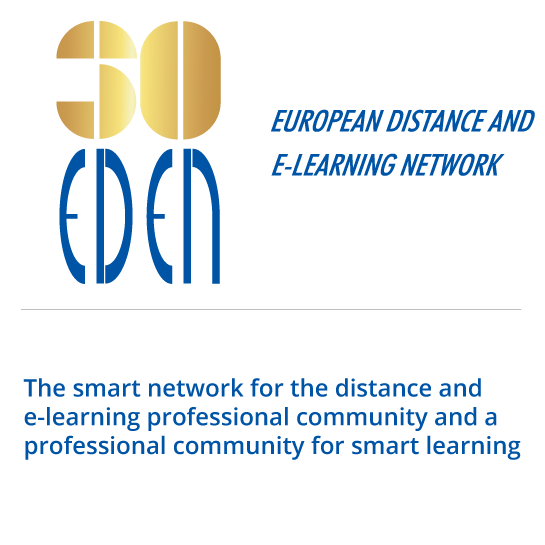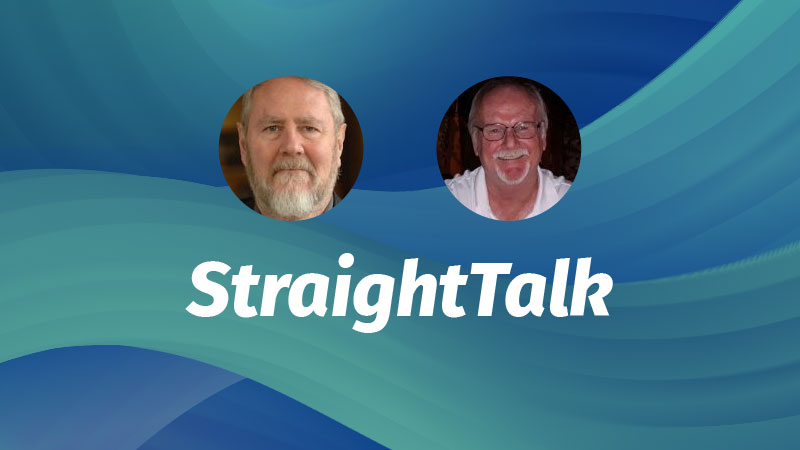StraightTalk
EDEN Council of Fellows Interview Series
Host: Dr. Don Olcott,Jr., FRSA, Council Chair
OERs Unleashed:
Why Now is the Perfect Time for
Universities to Mainstream OERs
An Interview with
 Professor Rory McGreal
Professor Rory McGreal
EDEN Senior Fellow
UNESCO/ICDE Chair for OER and Professor
Athabasca University
CANADA
About the Guest
Professor Rory McGreal is the UNESCO/International Council for Open and Distance Education Chair in Open Educational Resources at Athabasca University, Alberta, Canada. He is co-editor of the International Review of Research in Open and Distance Learning (IRRODL), and founder of the OER Knowledge Cloud. He is presently the director of the Technology Enhanced Knowledge Research Institute (TEKRI). Formerly, he served as the Associate Vice President Research. He is a past recipient (2002) of the Charles Wedemeyer Outstanding Distance Education Practitioner in North America and is a Senior Fellow of the European Distance and eLearning Network (EDEN). Rory is internationally reknown for his advocacy, leadership scholarship and commitment to open and distance learning.
 Don
Don Rory
Rory Don
DonAs part of the EDEN Council of Fellows, we explore various venues to showcase and draw upon the unique expertise and experience of our Senior Fellows and Fellows. Today, we are delighted to have you here to share your diverse vantage points and experiences in open education, particularly the adoption and use of Open Educational Resources and where the field is headed in the future.
 Rory
Rory Don
Donlandscape of higher education, particularly open and distance learning across the globe.
Do you think the pandemic has created an unforeseen and unique opportunity for university reset to reposition and/or reframe OERs into their mainstream academic missions?
 Rory
Rory Don
DonRory, are the long-term stresses of the pandemic relegating OERs to the side as educators face challenges of managing their basic roles, maintaining their mental health, aka, just dealing with life under these constraints? Have our online learning advocates and colleagues declared victory too soon that online learning is the new normal?
 Rory
Rory Don
Donintegrate OERs into university curriculum and reposition open education and online education. At the same time, leaders have to present a benefits package particularly to faculties about the value of adopting OERs and open education in general.
What do you see as the primary benefits of OER for the institution and for faculty members over the next decade?
 Rory
Rorysavings to students of pivoting to use OER, but also the added convenience of using learning content that can be adapted to serve local needs. OER provide institutions and faculty with the legal, technical and pedagogical flexibility that they need to meet their learning goals. For example, having the legal right and technical capacity (no digital locks – as is common on commercial content) allow both instructors and student to use the content in different formats on a wide range of devices. The ability of instructors to freely share OER with others, both within and external to the institution has also been identified as a significant benefit. Time saving and workload reduction for instructors who adopt full lessons and courses with minimal or no adaptation is also a major benefit.
 Don
Don Rory
Rory Don
Donunnecessary proprietary fees for content, then these funds might be reallocated on a reoccurring budgetary basis for OER development and support to university departments and their respective faculties. Brilliant observation Rory.
I’d like to shift our conversation just a little bit Rory.
Do you anticipate micro-credentials and MOOCs becoming a stronger catalyst for OER adoption, use and dissemination? Perhaps the question is do they have potential to be mutually beneficial together?
 Rory
Rory Don
Don Rory
Rory Don
DonWhat is your elevator pitch to a university president, Rector or Vice Chancellor why he/she should integrate OERs into the mainstream of their institution? Let’s be honest, OERs are certainly not a solution to revenue enhancement, perhaps the opposite so how do we justify the time and moneys for the institution?
 Rory
RoryIn addition, if OER created elsewhere are used extensively, there is little additional cost not only to students, but also to the institution. The additional costs are only incurred if these are not used and are created locally at the institution’s expense. This is to be avoided for the most part. The entire ethos of OER is sharing among institutions and educators.
 Don
Don Rory
Rory Don
Don Rory
Rory Don
Don Rory
Rory Don
Don Rory
Rory- Do not waste time convincing the sceptics, just move quickly with those that are interested. People are convinced by successful implementations, not by arguments.
- Too many are obsessed with creating OER. There should be greater sharing of OER that exist. A full course can be embodied in one OER or courses can be assembled from OER that already exist are accessible and readily available.
- Most faculty are not interested in creating courses. They are obliged to focus on research, so they would prefer OER that are full courses with tests and examples etc. Those faculty who like to create and develop courses do not need convincing, they are doing it.
- Of course, OER are excellent for promoting open education and open educational practices, however, they can also be used by more traditional instructors. Because they are open, OER can fit into a wide variety of pedagogical approaches and need not be limited to those who are working for pedagogical change in the academy. I support changes, but faculty who don’t want to change can still successfully use OER.
 Don
Don Rory
RoryOpen Source software is used by many institutions and should be used more by institutions and faculty. There are many good substitutes. So, I agree that there should be as much support for open source applications as for OER.
 Don
Don Rory
Rory Don
Don Rory
Rory Don
Don Rory
Rory

